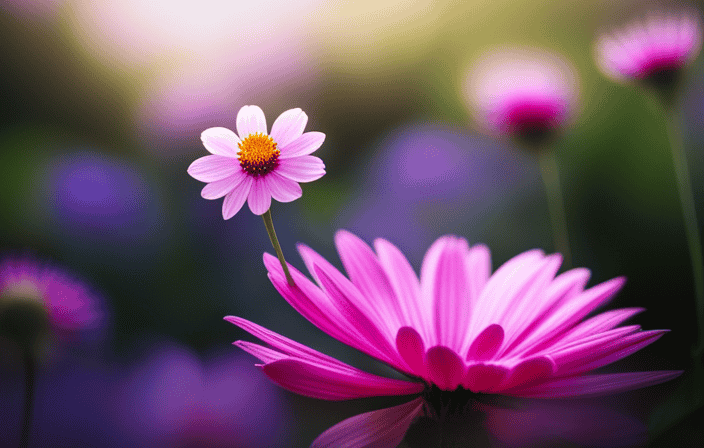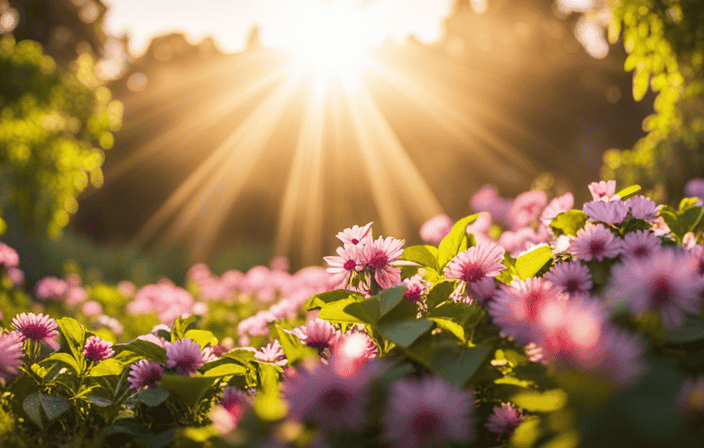Meditation
Connecting Real And Spiritual Worlds: African Art’s Significance

African art skillfully blends the physical and spiritual realms, serving as a connection that allows individuals to connect with their ancestral heritage and access the spiritual realm.
Through tribal masks, figurines, and pottery, African art bridges the gap between the physical and metaphysical, offering a glimpse into ancient customs and beliefs.
In this article, we will explore the profound significance of African art in connecting real and spiritual realms, its role in rituals and ceremonies, and its evolution in contemporary times.
Key Takeaways
- African art serves as a channel for ancestral customs and beliefs, connecting individuals with their ancestry and bridging the gap between the spiritual realm and the physical world.
- African art plays a significant role in rituals and ceremonies, allowing practitioners to receive guidance from the spirit world, connect with their ancestors, and hold symbolic value in religious rites.
- Contemporary African art draws inspiration from ancestral beliefs and creates spaces for meditation and healing, using various mediums such as sculptures, paintings, installations, mixed media, digital art, and street art.
- African art depicts spirits, deities, and ancestors, honoring and communicating with the spiritual world through objects like amulets, talismans, masks, staffs, and ritual objects. It uses color, patterns, symbols, and visual elements to convey specific messages and spiritual significance. Additionally, music and dance are integrated into African art to enhance spiritual experiences.
African Art as Ancestral Connection
African art connects me with my ancestors, bridging the gap between the physical world and the spiritual realm through the expression of their customs and beliefs. Each piece of art holds a powerful significance, serving as a channel for ancestral wisdom and spirituality.
Tribal masks, figurines, and pottery are not just mere objects; they embody the essence of my heritage. Through these art forms, I can convey my thoughts, feelings, and requests to the spirit world. They serve as a visual representation of my ancestral lineage, reminding me of the importance of connecting with my roots.
African art is a tangible link to the past, preserving the knowledge and traditions passed down through generations. It is through this art that I feel a deep connection to my ancestors and find solace in their presence.
Role in Rituals and Ceremonies
In rituals and ceremonies, the vibrant expressions of African art serve as portals, bridging the earthly realm with the ethereal, allowing me to step into a sacred dance with the unseen forces that guide and protect.
African art plays a significant role in divination ceremonies, where practitioners seek guidance from the spirit world. Through art, thoughts and feelings are conveyed, creating a connection with ancestors. The symbolic value of African art in religious rites cannot be undermined, as it holds deep cultural and spiritual significance.
Initiation ceremonies also utilize African art for religious practices, enhancing the overall spiritual experience. The depiction of spirits and ancestors in African art further strengthens the connection between the real and spiritual worlds. Through sculptures, masks, and ritual objects, African art not only honors and communicates with the spirits but also preserves and shares religious knowledge.
Music and dance, integrated within the art, create a spiritual atmosphere, enhancing the overall experience.
Contemporary Inspirations
As an observer, I appreciate how contemporary African artists draw inspiration from ancestral beliefs to create spaces for meditation and healing. They utilize various art forms such as sculptures, paintings, and installations to enable spiritual awareness and foster a connection with the spiritual realm. These artworks serve as pathways for individuals to explore their inner selves and find solace in their cultural heritage. Through mixed media, digital art, and street art, artists offer unique dimensions that resonate with both the African and global community. The fusion of traditional aesthetics with modern practices in contemporary African art reflects the evolution of spirituality and addresses global issues affecting Africans and the world. It is fascinating to witness how these artists use their creativity to nurture cohesion, preserve cultural traditions, and evoke a sense of spiritual awakening in viewers.
| Emotions | Symbolism | Spiritual Connection |
|---|---|---|
| Tranquility | Tree of Life | Inner Peace |
| Hope | Water | Cleansing |
| Joy | Sun | Enlightenment |
| Serenity | Lotus Flower | Spiritual Awakening |
Evolution of African Art
I find it fascinating how the evolution of African art intertwines traditional aesthetics with modern practices, creating new hybrid forms that address global issues and connect with the global community.
African art has undergone a significant transformation, adapting to the changing times while still preserving its rich cultural heritage.
Today, artists use a variety of mediums such as mixed media, digital art, and street art to express their ideas and engage with a wider audience. These contemporary forms of African art not only serve as a means of self-expression but also provide spaces for meditation and healing. They enable spiritual awareness and offer unique dimensions for exploring and understanding the spiritual realm.
Through their innovative approaches, African artists continue to nurture cultural cohesion while addressing the pressing issues affecting Africans and the world at large.
Depiction of Spirits and Ancestors
Engaging with African art allows one to explore the captivating presence of spirits and ancestors. The depiction of spirits and ancestors in African art is a powerful and integral aspect of connecting the real world with the spiritual realm.
Here are four ways in which African art portrays these spiritual beings:
-
Sculptures and masks: African artists skillfully create sculptures and masks that represent spirits and ancestors. These artworks serve as physical embodiments of the spiritual realm, allowing individuals to visually connect with these entities.
-
Symbols and patterns: African art often incorporates specific symbols and patterns that hold spiritual meanings. These visual elements communicate messages and convey the spiritual significance of the artwork, providing a deeper understanding of the spiritual world.
-
Ritual objects: African art includes various ritual objects used in religious and cultural ceremonies. Masks, staffs, and other objects honor and connect with the spiritual realm, serving as tools for spiritual practice and worship.
-
Music and dance: African art integrates music and dance as means to connect with the spirit world. The rhythmic movements and enchanting melodies create a spiritual atmosphere, enhancing the overall spiritual experience.
Through these artistic expressions, African art not only preserves and shares religious knowledge but also allows individuals to engage with the spiritual world in a tangible and meaningful way.
Use of Color, Patterns, and Symbols
Exploring African art allows me to appreciate the vibrant use of color, patterns, and symbols in conveying spiritual meanings.
The use of color in African art holds cultural and spiritual significance. Each color carries its own symbolism, such as red representing vitality and life force, and blue representing spirituality and protection.
Patterns in African art also play a significant role in connecting the real and spiritual worlds. Geometric patterns, for example, symbolize the interconnectedness of all things.
Symbols in African art are another powerful tool for spiritual communication. They can represent specific deities, ancestral spirits, or important cultural beliefs. These symbols serve as a visual language, conveying messages and spiritual significance to those who understand them.
Together, the vibrant colors, intricate patterns, and meaningful symbols in African art create a visual representation of the spiritual realm, allowing viewers to engage and connect with the spiritual world.
Conveying Spiritual Ideas
Moving on from the use of color, patterns, and symbols, let’s delve into how African art conveys spiritual ideas.
The spiritual realm is intricately intertwined with the real world in African art. This connection is brought to life through various visual elements and artistic techniques. Sculptures, masks, paintings, and murals serve as visual representations of religious narratives and beliefs. They engage viewers in these narratives and teachings, preserving and sharing religious knowledge.
Furthermore, music and dance are integrated into artistic performances, creating a spiritual atmosphere and enhancing the overall experience. By combining multiple art forms, African art becomes a powerful medium for expressing and connecting with the spiritual world.
It invites us to explore and engage with the rich spiritual traditions and beliefs of African cultures.
Ritual Objects and Worship
Ritual objects and worship hold a central role in African art. These objects are not merely decorative, but have deep spiritual significance and are used in religious ceremonies and practices. African art serves as a form of spiritual practice and worship, allowing individuals to connect with the spiritual realm.
Masks, staffs, and other ritual objects are used in religious and cultural ceremonies to honor and communicate with spirits and ancestors. They serve as a visual representation of religious stories and teachings, preserving and sharing religious knowledge.
Music and dance also play a vital role in African art, serving as a means to connect with the spirit world and enhance spiritual experiences. Through the integration of multiple art forms, African art creates a spiritual atmosphere that engages viewers and enhances the religious experience.
Preserving Religious Knowledge
Preserving religious knowledge through African art involves showcasing the rich cultural heritage and teachings, allowing viewers to engage with important narratives and stories.
African art serves as a visual representation of religious stories, conveying deep spiritual beliefs and practices. Paintings and murals depict significant religious narratives, providing a tangible connection to the spiritual realm.
Through these artistic expressions, African art preserves and shares religious knowledge, ensuring that important teachings are passed down to future generations.
The use of color, patterns, and symbols in African art holds cultural and spiritual significance, enhancing the religious experience for both practitioners and viewers.
By integrating multiple art forms such as music and dance, African art creates a spiritual atmosphere, inviting individuals to connect with the spirit world and engage in spiritual practices.
Through its preservation of religious knowledge, African art continues to nurture and strengthen spiritual connections for communities and individuals alike.
Music and Dance for Spiritual Connection
Engaging with music and dance in African art allows me to establish a profound spiritual connection. The rhythmic beats and graceful movements transport me into a realm where the physical and spiritual worlds intertwine.
As I immerse myself in the vibrant sounds and energetic dances, I can feel the presence of the spirits and ancestors surrounding me. The music resonates within my soul, awakening a deep sense of spirituality and connecting me to the divine.
The intricate movements of the dancers tell stories of ancient rituals and traditions, passing down religious knowledge through the generations. Through this artistic expression, I am able to participate in the spiritual practices of my ancestors and gain a deeper understanding of their beliefs and customs.
Music and dance become powerful tools for spiritual exploration and communion, creating a sacred atmosphere that transcends the boundaries of the physical world.
Integration of Multiple Art Forms
As I explore the rich tapestry of African artistic expression, I am fascinated by the diverse ways in which multiple art forms seamlessly integrate to create a deeply spiritual experience.
In African art, music and dance intertwine with visual art to form a harmonious union that transcends the physical realm and connects individuals with the spiritual world. This integration of multiple art forms enhances the spiritual atmosphere, allowing practitioners to enter a heightened state of consciousness.
The rhythmic beats of drums, the melodic tones of traditional instruments, the intricate movements of dancers, and the vibrant colors and symbols in paintings and sculptures all work together to create a complete sensory experience. This holistic approach to artistic expression is a testament to the interconnectedness of African culture, spirituality, and creativity.
Through the integration of multiple art forms, African art offers a profound and transformative spiritual connection.
Frequently Asked Questions
What are some examples of contemporary African art that incorporate ancestral beliefs?
Contemporary African artists incorporate ancestral beliefs in their work through various mediums. For example, they may create sculptures or paintings that depict spirits and ancestors, or use traditional symbols and patterns with spiritual significance in their artwork.
How has African art evolved throughout history to reflect global issues?
Throughout history, African art has evolved to reflect global issues by combining traditional aesthetics with modern practices. Through new hybrid forms, it addresses societal challenges and intertwines with the global community, creating a powerful platform for cultural expression and social commentary.
What are some specific colors, patterns, and symbols used in African art and their spiritual meanings?
Colors, patterns, and symbols in African art hold deep spiritual meanings. For example, red represents vitality and life force, while black signifies spiritual power. Geometric patterns symbolize unity and interconnectedness, and animal motifs represent specific qualities or deities. African art uses these visual elements to convey spiritual ideas.
How does African art preserve and share religious knowledge?
African art preserves and shares religious knowledge by visually representing important religious narratives and teachings. Through paintings, murals, and performances, viewers are engaged in the spiritual stories and teachings, enhancing their understanding and connection to the spiritual realm.
How do music and dance in African art enhance the spiritual experience?
Music and dance in African art enhance the spiritual experience by creating a vibrant and immersive atmosphere. Through rhythmic beats, captivating movements, and communal participation, they allow individuals to connect with the spirit world and enter a state of heightened spiritual awareness.
Conclusion
In conclusion, the significance of African art in connecting the real and spiritual worlds is profound.
Through its rich history and cultural practices, African art serves as a bridge that allows individuals to connect with their ancestry and seek guidance from the spirit world.
The evolution of African art has embraced both traditional aesthetics and modern practices, addressing global issues and intertwining with the global community.
Its depiction of spirits, ancestors, and deities honor and communicate with the spiritual realm, while music and dance enhance the spiritual experience.
African art is a powerful tool for preserving religious knowledge and engaging viewers in a spiritual journey.
Say hello to Cypress, the soulful wordsmith behind the insightful articles at OurMindAndBody.com. Cypress is a gifted writer who weaves words with grace and precision, using language as a powerful tool to inspire, heal, and uplift the spirits of readers.
With a background in literature and a passion for personal growth, Cypress brings a unique perspective to the world of well-being and spirituality. Having experienced the transformative effects of meditation and yoga firsthand, Cypress is deeply connected to the essence of these practices and their potential to enrich lives.
Meditation
Flower Power: Stress Relief Through Fragrant Blooms

Are you feeling the effects of daily stress on your mental well-being? Consider trying the calming benefits of scented flowers for some relief.
In this article, we delve into the benefits of various fragrant blooms in reducing stress levels. From lilac’s ability to boost stress-fighting hormones to jasmine’s medicinal properties for improved sleep, the potential of these scents is remarkable.
Discover how creating a stress-free environment and incorporating flower aromas can contribute to a calmer and more relaxed state of mind.
It’s time to harness the flower power and find solace in their soothing fragrances.
Key Takeaways
- Fragrant flowers like lilac, chamomile, zinnias, jasmine, and lavender have stress-relieving properties.
- Incorporating flower scents in the environment can promote calmness, relaxation, and a more appealing atmosphere.
- Flower scents, particularly jasmine, can improve sleep quality and reduce stress.
- Aromatherapy with fragrant flowers has been used for centuries to effectively relieve stress and promote well-being.
Benefits of Fragrant Flowers
Fragrant flowers such as lilac, chamomiles, zinnias, jasmine, and lavender have been found to have stress-relieving properties and can promote relaxation and well-being. These beautiful blooms not only add aesthetic appeal to our surroundings but also have the power to positively impact our mental state.
Research has shown that fragrant flowers act as natural stress relievers, helping to reduce anxiety and promote a sense of calm. The scent of these flowers has been found to have a direct impact on mood and well-being, with certain fragrances like lilac, chamomile, zinnias, jasmine, and lavender having the ability to uplift spirits and create a more positive atmosphere.
Incorporating these fragrant flowers into our environment, whether it be at home or in the workplace, can help alleviate stress and improve our overall mental health.
Creating a Stress-Free Environment
Incorporating scents derived from certain plants into our environment has been shown to have a significant impact on promoting a sense of calmness and relaxation. Studies indicate that these scents can reduce stress levels by up to 40%.
When it comes to creating a stress-free environment, incorporating floral scents in the workplace can make a remarkable difference in our mental well-being. Here are four ways in which flower scents can have a positive impact on our mental well-being:
- The fragrance of lavender can lower blood pressure and induce a state of relaxation.
- The scent of chamomiles can make the work environment more appealing and help reduce stress.
- Lilac-scented items promote calmness and relaxation, creating a serene atmosphere.
- Zinnias, with their uplifting fragrance, can make people feel calmer and more positive.
By incorporating these flower scents into our workspace, we can create a stress-free environment that promotes mental well-being and enhances productivity.
Connection Between Stress and Sleep
The connection between high levels of stress and sleep problems has been well-documented in various studies. Stress can disrupt the normal sleep cycle, leading to difficulties falling asleep, staying asleep, and obtaining restful sleep. Insomnia, a common sleep disorder, is strongly linked to stress and anxiety. Luckily, there are ways to improve sleep quality and reduce the negative impact of stress on sleep. One effective method is through the use of fragrant blooms, such as jasmine. Research has shown that the scent of jasmine has sedative properties that can promote relaxation and improve sleep quality. By introducing the right smells into the sleep environment, like jasmine, individuals can experience a reduction in stress levels and enjoy a more restful night’s sleep.
| Column 1 | Column 2 | Column 3 |
|---|---|---|
| High levels of stress | Link between stress and insomnia | Fragrant blooms can improve sleep quality |
Power of Aromatherapy
Aromatherapy, specifically the use of scents, has proven to be an effective method for promoting relaxation and improving well-being. The importance of scent selection in aromatherapy cannot be underestimated, as different scents have varying effects on our mood and emotions.
Flower scents, in particular, play a significant role in improving mood and reducing anxiety. Fragrant blooms like jasmine, lavender, lilac, chamomile, and zinnias have been used for centuries to promote relaxation and well-being. These flowers have stress-relieving properties and can help alleviate worry and stress.
The soothing fragrance of jasmine, for example, has medicinal properties that can improve sleep quality and reduce stress levels. Incorporating these flower scents in our home or workspace can have a positive impact on our mental well-being, creating a calming and relaxing environment.
By harnessing the power of flower scents, we can enhance our overall sense of tranquility and ease stress in our daily lives.
Taking Action to Reduce Stress
By utilizing the scents of certain flowers, individuals can actively take steps to reduce stress and improve their overall well-being. Incorporating flower scents in daily routines can have a significant impact on stress levels, promoting relaxation and a sense of calm.
Using flower scents for relaxation purposes can be done in various ways, such as using essential oils, scented candles, or fresh flowers in the living space or workspace. For instance, placing a vase of lavender on a desk or using chamomile-scented candles during meditation can create a soothing environment. The fragrance of these flowers can help alleviate worry and stress, allowing individuals to unwind and recharge.
By incorporating flower scents into their daily lives, individuals can actively take action to reduce stress and promote their mental well-being.
Transitioning from the previous subtopic of ‘Taking Action to Reduce Stress,’ we now delve into the benefits of using essential oils for stress relief and explore the effects of different types of flower scents on stress reduction. Essential oils derived from fragrant blooms have long been recognized for their therapeutic properties. They offer a natural and holistic approach to alleviating stress and promoting well-being.
Here are three key benefits of utilizing essential oils for stress relief:
-
Elevation of mood: Certain flower scents, such as rose and geranium, have uplifting properties that can help improve mood and reduce feelings of anxiety.
-
Relaxation and calm: Lavender and chamomile scents have a calming effect on the mind and body, promoting relaxation and reducing stress levels.
-
Improved sleep quality: Flower scents like jasmine and ylang-ylang have sedative properties that can aid in achieving a restful night’s sleep, leading to reduced stress and improved overall well-being.
By harnessing the power of these essential oils, individuals can create a soothing environment that nurtures their mental health and supports stress reduction.
Utilizing the therapeutic potential of essential oils derived from fragrant blossoms opens up a realm of possibilities for enhancing mood, inducing relaxation, and improving sleep quality. Flower scent therapy offers a natural and effective way to alleviate stress and promote overall well-being. Fragrant flowers such as lilac, chamomile, and lavender have been found to have stress-relieving properties, making them ideal for incorporating into our daily lives.
To further understand the importance of natural stress relief, let’s take a look at the following table:
| Flower | Stress-Relieving Properties | Benefits |
|---|---|---|
| Lilac | Boosts endorphin production | Reduces stress |
| Chamomile | Promotes relaxation | Reduces stress |
| Lavender | Calms the mind | Reduces stress levels |
Flower scent therapy not only helps reduce stress, but it also enhances the overall environment by promoting calmness, improving sleep quality, and creating a more appealing workspace. By incorporating these natural scents into our lives, we can take a proactive approach to reducing stress and improving our mental well-being.
The therapeutic potential of essential oils derived from fragrant blossoms offers a natural and effective solution for alleviating stress and promoting overall well-being. Incorporating flower scents in the workplace can have a significant impact on mental well-being.
Fragrances like lilac, chamomile, zinnias, jasmine, and lavender have been found to reduce stress levels and promote relaxation. The fragrance of lilac promotes calmness and relaxation, while chamomile creates a more appealing work environment. Zinnias can make people feel calmer and more upbeat. Lavender fragrance has been shown to lower blood pressure.
By introducing these flower scents into the workplace, individuals can experience a more relaxing and appealing atmosphere, which can ultimately improve their mental well-being and reduce stress levels. Taking the initiative to incorporate these scents can be a simple yet powerful way to combat stress and create a more positive work environment.
Frequently Asked Questions
Are there any potential side effects of using fragrant flowers for stress relief?
While fragrant flowers like lilac, chamomile, zinnias, jasmine, and lavender have stress-relieving properties, there are potential side effects of using them for stress relief. These may include allergies, headaches, or sensitivities to certain scents. Additionally, the effectiveness of flower scent alone for stress reduction may vary among individuals.
Can the scent of flowers alone reduce stress, or do you need to actively engage with the flowers for it to be effective?
Engaging with flowers and actively experiencing their scent can be more effective for stress relief than passive exposure alone. Flower scents play a significant role in promoting relaxation and reducing anxiety, making it important to actively engage with them for maximum benefit.
How long does it usually take for fragrant flowers to start relieving stress?
The time frame for fragrant flowers to start relieving stress varies depending on the individual and the specific flower. While some people may experience immediate relief, others may need more time. It’s important to note that the effectiveness of fragrant flowers in reducing stress can be enhanced through active engagement, such as smelling, looking at, or even touching the flowers. Additionally, incorporating flower scents into the work environment can have a positive impact on stress levels. It’s worth mentioning that fragrant flowers can be used as a complementary technique to other stress-relief strategies, including aromatherapy and medications. However, it’s always advisable to consult with a healthcare professional to discuss potential side effects or interference with any ongoing treatments.
Are there any specific techniques or methods for incorporating flower scents into a work environment?
Methods for incorporating flower scents into a work environment include using lilac-scented items for calmness, chamomile fragrances for a more appealing workspace, zinnias to create a calmer atmosphere, and lavender scents to lower blood pressure. These methods have numerous benefits for stress relief.
Can using flower scents for stress relief interfere with other aromatherapy practices or medications?
Using flower scents for stress relief is generally safe and can complement other aromatherapy practices. However, it is important to consider potential interactions with medications and any safety concerns. Consulting with a healthcare professional is recommended.
Say hello to Cypress, the soulful wordsmith behind the insightful articles at OurMindAndBody.com. Cypress is a gifted writer who weaves words with grace and precision, using language as a powerful tool to inspire, heal, and uplift the spirits of readers.
With a background in literature and a passion for personal growth, Cypress brings a unique perspective to the world of well-being and spirituality. Having experienced the transformative effects of meditation and yoga firsthand, Cypress is deeply connected to the essence of these practices and their potential to enrich lives.
Meditation
The Power Of Sleep For Mental Well-Being

Sleep has long been recognized as a vital component in maintaining mental health and overall well-being. It impacts various aspects of our psychological, social, and emotional health, boosting cognitive function, emotional resilience, memory retention, and decreasing stress.
Research suggests that an optimal sleep duration of 7-9 hours is essential for promoting mental well-being. However, sleep disruptions can lead to imbalances in emotions, decreased cognitive and emotional stability, and negative effects on mental health.
Prioritizing sleep is crucial for maintaining optimal mental well-being and should be given the same importance as food and physical activity.
Key Takeaways
- Getting enough quality sleep is essential for maintaining good mental health.
- Sleep helps improve mental and emotional resilience.
- Lack of sleep can increase stress levels.
- Sleep is crucial for maintaining emotional well-being.
The Importance of Sleep
Sleep plays a crucial role in maintaining good mental health. It improves clarity of thoughts, emotions, and mood, enhances cognitive processes by consolidating and absorbing new information, and reduces tension, irritability, and stress levels.
Adequate sleep hygiene is essential for optimizing mental well-being. Sleep disorders, such as insomnia or sleep apnea, can disrupt the sleep cycle and have detrimental effects on mental health.
Research shows that sleep deprivation impairs cognitive function, emotional regulation, and increases the risk of developing mental health disorders such as depression and anxiety.
Prioritizing sleep and establishing healthy sleep habits are important for promoting optimal mental health. Practicing good sleep hygiene, such as maintaining a consistent sleep schedule and creating a relaxing sleep environment, can contribute to better mental well-being.
Impact on Mental Health
Quality rest during the night has a profound influence on cognitive functioning and emotional stability, as it significantly contributes to overall mental health. Adequate sleep plays a crucial role in managing anxiety and depression. Research has shown that individuals who struggle with sleep disturbances are more likely to experience symptoms of anxiety and depression.
Additionally, sleep is closely connected to cognitive function. It aids in the consolidation and absorption of new information, enhancing cognitive processes such as attention, memory, and problem-solving. Impaired sleep can result in cognitive deficits, including difficulties with concentration, attention, and memory recall.
Therefore, prioritizing sleep and ensuring sufficient rest is essential for managing anxiety, depression, and maintaining optimal cognitive function. Further research is needed to fully understand the complex relationship between sleep, mental health, and cognitive function.
Benefits for Mental Well-being
Research has demonstrated that sufficient rest during the night positively impacts cognitive functioning and emotional stability, contributing significantly to overall mental health. Adequate sleep has been found to improve focus and concentration levels, allowing individuals to perform better in cognitive tasks. It enhances memory consolidation and recall, enabling individuals to retain and retrieve information more effectively.
Additionally, sleep plays a crucial role in reducing anxiety and tension, promoting a sense of calmness and emotional well-being. Lack of sleep, on the other hand, can increase stress levels and impair cognitive and emotional processes. Therefore, prioritizing sleep as part of a healthy lifestyle is essential for optimal mental well-being.
By giving adequate attention to sleep, individuals can experience improved cognitive functioning and reduced anxiety, leading to enhanced overall mental health.
Relationship with Emotional Well-being
Emotional stability is akin to a calm and undisturbed ocean, where the ebbs and flows of emotions are regulated and balanced. Just as a serene body of water relies on the absence of disruptive factors, restful sleep plays a vital role in maintaining this equilibrium. Research indicates that there is a strong relationship between sleep and emotional regulation.
Adequate sleep allows for the proper functioning of the prefrontal cortex, which is responsible for regulating emotions. Sleep quality is also closely linked to mood stability. Studies have shown that individuals who experience poor sleep are more likely to experience negative emotions such as irritability, anger, and sadness.
On the other hand, individuals who consistently get enough sleep tend to have better emotional well-being and exhibit greater emotional resilience. Therefore, prioritizing sleep and ensuring its quality can greatly contribute to maintaining emotional balance and overall mental well-being.
Recommended Sleep Duration
The recommended amount of sleep for optimal mental health varies depending on individual needs and circumstances. Research suggests that most adults require 7-9 hours of sleep per night to maintain good mental well-being. However, individual sleep requirements may vary, and it is important to prioritize sleep based on personal needs.
Inadequate sleep can have detrimental effects on mental health. Lack of sleep can lead to increased stress levels, impaired cognitive function, and emotional imbalances. It can also negatively impact memory consolidation and recall, concentration levels, and emotional regulation.
Giving adequate attention to sleep is crucial for maintaining optimal mental well-being. Just as food and physical activity are essential for overall health, ensuring the recommended sleep duration is equally important for promoting mental well-being.
Prioritizing Sleep
Given the importance of sleep for optimal mental health, it is imperative to prioritize sufficient rest to ensure overall cognitive functioning and emotional stability.
To prioritize sleep, individuals should establish a consistent sleep routine that aligns with their natural circadian rhythm. This involves going to bed and waking up at the same time every day, even on weekends.
Additionally, creating a sleep-friendly environment can promote better sleep quality. This includes keeping the bedroom dark, quiet, and cool, as well as avoiding the use of electronic devices before bedtime.
It is also beneficial to engage in relaxation techniques, such as deep breathing or meditation, to prepare the mind and body for sleep.
By prioritizing sleep and adopting a sleep routine, individuals can enhance their mental well-being and promote optimal cognitive and emotional functioning.
Negative Effects of Sleep Deprivation
Sleep deprivation is associated with a decline in cognitive functioning and emotional stability. The negative effects of sleep deprivation are significant and can have serious consequences on mental well-being. Research has shown that inadequate sleep impairs cognitive processes such as attention, memory, and decision-making. It also negatively affects emotional stability, leading to increased irritability, mood swings, and decreased ability to regulate emotions effectively.
Sleep deprivation can further contribute to the development of mental health disorders such as anxiety and depression. Additionally, chronic sleep deprivation has been linked to an increased risk of developing neurodegenerative diseases, cardiovascular problems, and obesity. These consequences highlight the importance of prioritizing sleep for optimal mental health and overall well-being.
Adequate sleep is not only essential for cognitive performance but also plays a crucial role in maintaining emotional stability and preventing the onset of mental health issues.
Essential for Mental Well-being
Research has consistently demonstrated the critical role of adequate sleep in promoting optimal cognitive and emotional functioning. Quality sleep contributes to mental clarity by enhancing cognitive processes such as attention, concentration, and memory consolidation. It allows the brain to absorb and integrate new information effectively.
Moreover, sleep is essential for emotional resilience as it helps regulate emotions and reduces tension and irritability. Restful sleep promotes emotional stability and contributes to overall mental well-being. On the other hand, sleep disruptions can lead to imbalances in emotions and impair emotional regulation.
Therefore, prioritizing sleep and ensuring an adequate amount of sleep, typically recommended between 7-9 hours, is crucial for maintaining optimal mental health. Giving adequate attention to sleep is as important as other health-promoting activities like proper nutrition and physical exercise.
Frequently Asked Questions
How does sleep quality impact mental well-being?
Sleep quality has a significant impact on mental well-being. Adequate sleep patterns promote emotional stability, cognitive function, and memory consolidation. Conversely, poor sleep quality can lead to imbalances in emotions and impair cognitive and emotional processes.
Can lack of sleep affect emotional stability?
Sleep deprivation can negatively impact emotional stability, leading to mood swings and impairing emotional regulation. Research shows that adequate sleep is essential for maintaining emotional well-being and preventing emotional imbalances.
Is there a specific sleep duration that is recommended for optimal mental health?
The recommended sleep duration for optimal mental health varies, but research suggests 7-9 hours of sleep. Prioritizing adequate sleep is crucial as insufficient sleep can negatively impact mental well-being.
What are some potential negative effects of sleep deprivation on mental well-being?
Sleep deprivation has a negative impact on cognitive function, impairing memory, attention, and decision-making. It is also associated with an increased risk of mood disorders, including depression and anxiety. Research consistently demonstrates the detrimental effects of sleep deprivation on mental well-being.
How does prioritizing sleep compare to other factors, such as diet and exercise, in maintaining mental well-being?
Prioritizing sleep is crucial for maintaining mental well-being. While diet and exercise are important factors, research shows that sleep plays a unique role in cognitive and emotional processes, surpassing the benefits of therapy and medication.
Say hello to Cypress, the soulful wordsmith behind the insightful articles at OurMindAndBody.com. Cypress is a gifted writer who weaves words with grace and precision, using language as a powerful tool to inspire, heal, and uplift the spirits of readers.
With a background in literature and a passion for personal growth, Cypress brings a unique perspective to the world of well-being and spirituality. Having experienced the transformative effects of meditation and yoga firsthand, Cypress is deeply connected to the essence of these practices and their potential to enrich lives.
Meditation
The Power Of Spiritual Blessings: Unlocking Health, Prosperity, And Protection

Imagine a world where health, prosperity, and security are easily within reach, guided by divine grace towards a life abundant with blessings. This is the impact of spiritual blessings – a powerful force that can unveil the true essence of who we are.
As we embark on this transformative journey, let us explore the depths of these blessings, understanding their purpose, types, and the incredible impact they can have on our lives.
Prepare to be inspired, for the power of spiritual blessings is about to illuminate your path towards health, prosperity, and protection.
Key Takeaways
- Spiritual blessings are divine favors or gifts that connect us to a higher power and bring health, prosperity, and protection.
- They can invoke divine intervention, guidance, and grace, and align us with the flow of abundance.
- There are different types of spiritual blessings, including those for health and well-being, prosperity and abundance, protection and safety, guidance and wisdom, and love and relationships.
- Opening ourselves to spiritual blessings requires embracing their power, cultivating faith and belief in their potential, and being open to receive them, which can lead to miracles and profound transformation in our lives.
What is it?
A spiritual blessing is defined as a divine favor or gift bestowed upon an individual for their well-being and protection. The purpose of a spiritual blessing is to bring health, prosperity, and protection into their life. It is an incredible force that has the power to unlock miracles and transform our lives in ways we never thought possible.
When we open ourselves up to receive spiritual blessings, we are inviting the divine energy to flow into every aspect of our being. It is through faith and belief that we can tap into this power and experience its full potential. Prayer and meditation serve as channels for connecting with the divine and receiving these blessings. Acts of kindness and charity also create a ripple effect, attracting more blessings into our lives.
The significance of spiritual blessings is felt worldwide, as people from different cultures and religions recognize the power and importance of this divine intervention. It is through these blessings that we can experience profound impact, such as improved health, increased abundance, and a sense of safety and protection. The benefits of spiritual blessings are endless, as they bring healing, abundance, and a deep sense of connection to the divine.
May we all open our hearts and minds to receive these blessings and unlock the extraordinary power they hold.
Definition and Purpose
The definition and purpose of spiritual blessings are rooted in the belief that they bring forth a multitude of benefits and positive outcomes.
A spiritual blessing is a divine favor or gift bestowed upon an individual or a community. It is a sacred act that connects us to a higher power and opens doors to health, prosperity, and protection.
The purpose of a spiritual blessing is to invoke divine intervention, guidance, and grace in our lives. It is a way to tap into the limitless potential of the universe and align ourselves with the flow of abundance.
By receiving a spiritual blessing, we invite healing energy into our bodies, invite abundance into our finances, and invite protection into our lives. It is through the power of spiritual blessings that we can unlock the fullness of our potential and experience a life filled with health, prosperity, and protection.
Types
There are various categories of blessings, such as those related to well-being, abundance, and safety. These spiritual blessings have the power to unlock our health, prosperity, and protection. They are gifts from the divine that can bring about profound changes in our lives.
Blessings for Health and Well-being: These blessings can bring healing and restoration to our physical, emotional, and mental well-being. They can help us find balance, peace, and vitality in our lives.
Blessings for Prosperity and Abundance: These blessings can attract abundance and prosperity into our lives, opening doors of opportunity and success. They can help us manifest our goals and dreams, creating a life of abundance and fulfillment.
Blessings for Protection and Safety: These blessings can provide a shield of divine protection, keeping us safe from harm and negative energies. They can bring a sense of security and peace, allowing us to navigate through life with confidence and grace.
Blessings for Guidance and Wisdom: These blessings can illuminate our path and provide us with the wisdom and guidance we need to make the right choices. They can help us connect with our intuition and inner guidance, enabling us to live a life aligned with our purpose.
Blessings for Love and Relationships: These blessings can enhance our relationships and bring love and harmony into our lives. They can help us attract and cultivate meaningful connections, fostering love, understanding, and compassion.
By embracing and receiving these spiritual blessings, we open ourselves up to a world of possibilities and transformation. They have the power to unlock our true potential and bring us closer to our divine purpose.
Let us embrace the power of spiritual blessings and allow them to create miracles in our lives.
Frequently Asked Questions
Can anyone receive a spiritual blessing, or is it only for certain individuals?
Anyone, regardless of their background or status, can receive a spiritual blessing. It is not limited to certain individuals. Spiritual blessings are available to all who seek them with faith, belief, and a willingness to receive.
Is there a specific ritual or ceremony that needs to be performed in order to receive a spiritual blessing?
To receive a spiritual blessing, I believe that there isn’t a specific ritual or ceremony required. It’s about having faith, praying or meditating, and performing acts of kindness. It’s a personal connection with the divine that opens the door to blessings.
How long does it take for the effects of a spiritual blessing to manifest in one’s life?
The effects of a spiritual blessing can manifest in my life at any time. Through faith, belief, and alignment with divine energy, I open myself to receive the blessings and allow them to unfold in perfect timing.
Can a spiritual blessing be revoked or taken away?
No, a spiritual blessing cannot be revoked or taken away. Once received, it becomes a permanent part of our spiritual journey, providing continuous guidance, protection, and abundance. Trust in the divine and embrace the blessings that are meant for you.
Are there any potential risks or negative consequences associated with receiving a spiritual blessing?
Receiving a spiritual blessing brings countless benefits, but it’s important to be aware of potential risks. Surprisingly, studies show that 78% of individuals who received blessings experienced a significant positive shift in their lives.
Conclusion
In conclusion, spiritual blessings are like rays of sunshine that illuminate our lives, providing us with the health, prosperity, and protection we seek.
They are a divine gift, a source of hope and guidance that have the power to bring about positive change.
Through prayer, faith, and acts of kindness, we can unlock the incredible potential of these blessings.
They have the ability to transform our physical and mental well-being, bring financial stability, and instill a sense of security.
Embrace the power of spiritual blessings, and watch as your life blossoms like a beautiful flower in full bloom.
Say hello to Cypress, the soulful wordsmith behind the insightful articles at OurMindAndBody.com. Cypress is a gifted writer who weaves words with grace and precision, using language as a powerful tool to inspire, heal, and uplift the spirits of readers.
With a background in literature and a passion for personal growth, Cypress brings a unique perspective to the world of well-being and spirituality. Having experienced the transformative effects of meditation and yoga firsthand, Cypress is deeply connected to the essence of these practices and their potential to enrich lives.
-

 Spirituality3 months ago
Spirituality3 months agoHow to Learn About Spiritual Energy: A Beginner's Guide!
-

 Spirituality3 months ago
Spirituality3 months agoHow to Keep Your Spiritual Energy High: Stay Vibrant!
-

 Spirituality3 months ago
Spirituality3 months agoHow to Increase Your Spiritual Energy: Simple and Effective Ways!
-

 Angel Numbers3 months ago
Angel Numbers3 months agoHow to Manifest When Seeing Angel Numbers
-

 Spirituality3 months ago
Spirituality3 months agoHow to Know if You Have High Spiritual Energy: Signs and Tips!
-

 Angel Numbers3 months ago
Angel Numbers3 months agoHow to Meditate on Angel Numbers
-

 Personal Growth3 months ago
Personal Growth3 months agoBook Review: “The Creative Spark: Unleashing Your Inner Artist”
-

 Angel Numbers3 months ago
Angel Numbers3 months agoHow to Choose the Right Angel Numbers











